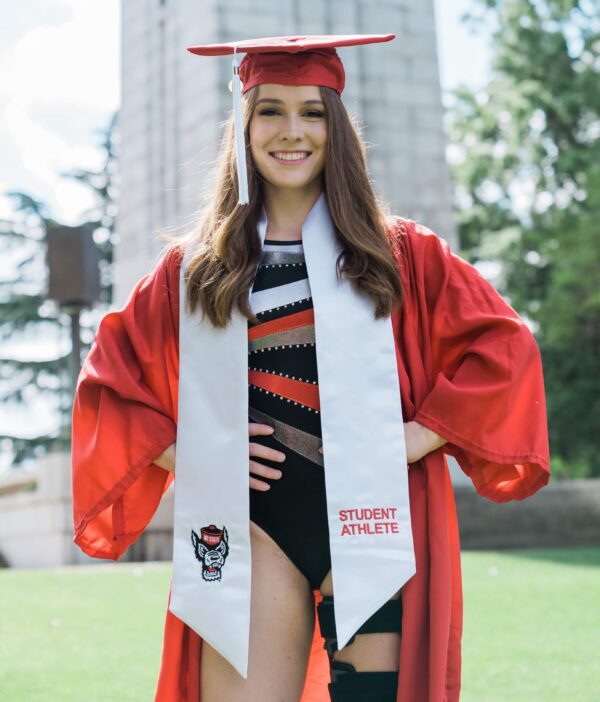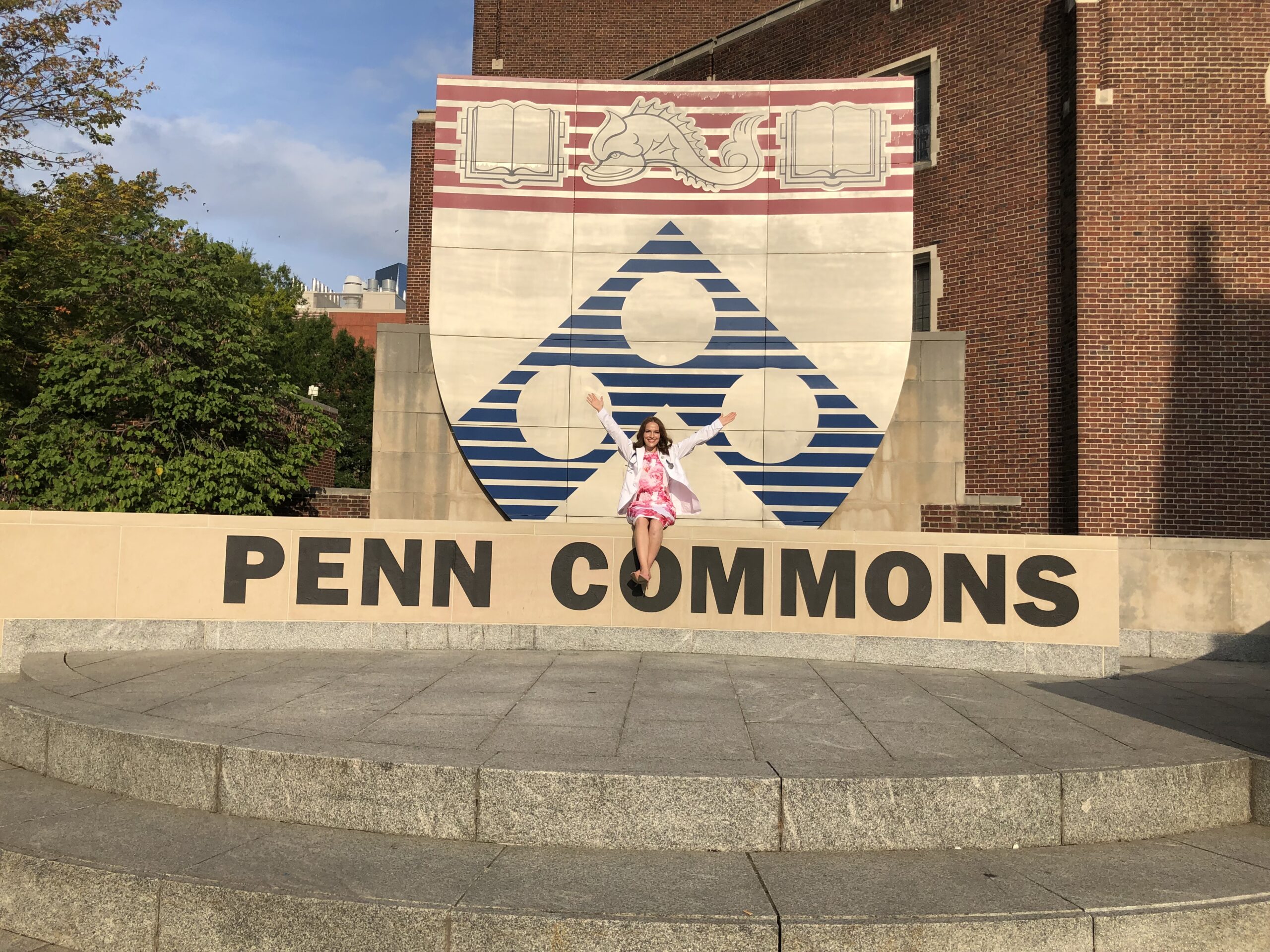
Student group board member and graduate student Maggie Tamburro on the struggles faced after retirement from gymnastics, and how the skills learned were invaluable to her post graduate student experience.
There are few things I can remember as acutely as the profound emptiness I felt after retiring from gymnastics. After nearly two decades filled with wonderful experiences in the sport that I loved, it was impossible to comprehend that I would never again dawn a bedazzled leotard or feel the all-consuming nerves of a big competition. The months after my retirement were incredibly challenging. In the whirlwind of recovering from ACL reconstruction and moving to a new city to start medical school, I started to feel like the piece of myself that I lost with retirement was not coming back. While I started long, grueling days filled with endless studying, my former teammates returned to the dreadful but familiar pre-season grind. When I used to end a long day of class by working out with my closest friends for four hours, I now ended a long day of class with at least four more hours of monotonous studying. I used to find joy and comfort in being part of a close-knit team, and I now felt isolated, left on my own to sink or swim. To make matters worse, I used to get dinner from the athletes’ dining hall, and now I could barely scrape together a microwaved meal.
I am hardly the first athlete to struggle with retirement, and I am incredibly grateful to the many accomplished athletes who have been brave enough to share their retirement-related struggles. The data are disturbingly convincing, retired athletes often struggle to maintain their mental and physical health. The problem seems to be that there is no easy way to avoid the difficulty of this phase. I thought I had protected myself against a post-gymnastics identity crisis by lining up my next great adventure, medical school, and I was disappointed when I still fell victim to the pains of retirement.
I had no choice but to trust that the fulfillment I once found in the gym could in fact be felt in other aspects of life. Slowly but surely, I began to find gratification for my inner gymnast, and, slowly but surely, it began to pay off. Surprisingly, it was not the time management skills, self discipline, or work ethic that I developed in the gym that seemed to help the most, though these things are certainly necessary for survival in a high-pressure environment like medicine. Instead, it was the subtle skills I had subconsciously honed over years of working with a team, facing and conquering fear, and being humbled by failure that helped me to cope with the challenges of medical school. These feelings started to crystallize during my surgery rotation. I joined a team of surgeons, anesthesiologists, physicians’ assistants, nurses, and surgical techs, and I felt a sense of kinship to them because I recognized and revered their passion for the pursuit of perfection. We had all spent decades refining our skills with meticulous attention to detail; their skills were better suited for the operating room whereas mine were really only useful on uneven bars. When their hard work finally paid off with a successful operative outcome, I recognized their emotion as the joy of a gymnast who finally nailed a routine in competition. I began to see how the operating room could perhaps become my new competition floor.

It was the subtle skills subconsciously honed over years of working with a gymnastics team, facing and conquering fear, and being humbled by failure that helped me to cope with the challenges of medical school.
Just like my memory of the feelings of retiring from gymnastics, I remember my first time working with a healthcare team to treat an injured athlete incredibly clearly. A young boy needed surgery that would keep him from playing in a championship game, and he was inconsolable. As a medical student, all I could offer him was my time and empathy, and as I listened to his story, I could feel my inner gymnast coming to life again. She honored his disappointment in a way that only an athlete who loves their sport can. The opportunity to help him get back to doing what he loved seemed more than worthy of the lonely hours of studying and long shifts in the hospital that stood between me and having the chance to help patients like him. I felt, maybe for the first time, that the challenge of being a healthcare provider for athletes would truly be every bit as satisfying as the challenge of being a gymnast.
Five years into retirement, I feel incredibly fortunate that my inner gymnast is captivated by a new challenge, making gymnastics a happy and healthy sport for the next generation of athletes through improved healthcare and research. Unfortunately, I do not have an easy solution to lessen the struggle of the retired athlete, but I am sure of two things: I am a much better medical student because I was a gymnast and the joy and fulfillment once found in the gym can indeed be found elsewhere. My hope is that all retired athletes have the patience, perseverance, and support to find it.
Maggie Tamburro is a former collegiate gymnast undertaking an MD-PhD at the University of Pennsylvania.